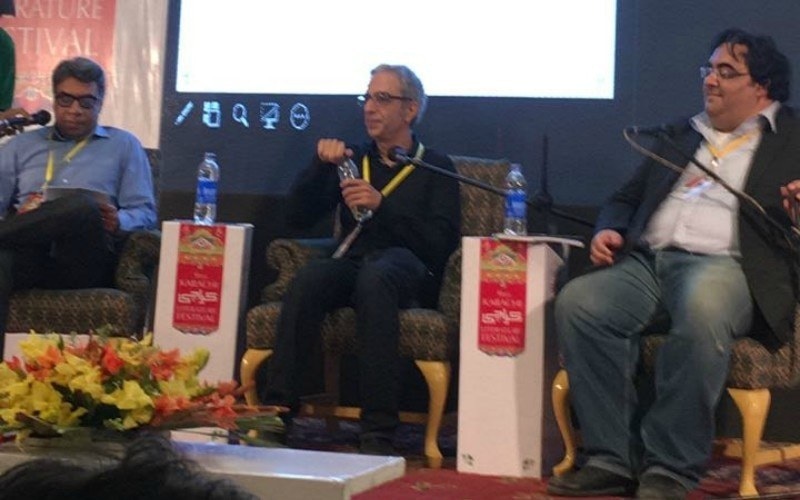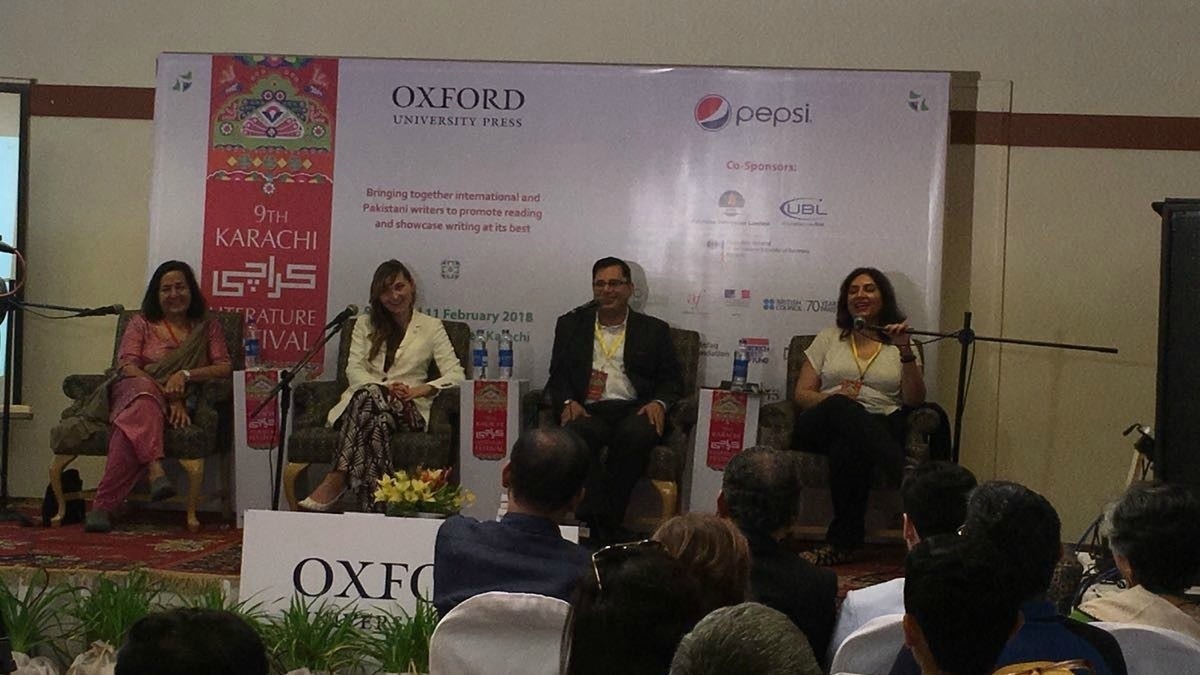Review: Karachi Literature Festival 2018 betrayed a crisis of ambition
It has taken me several days to identify what feeling, mood or impulse best defined the 9th Karachi Literature Festival (KLF), held last weekend at the Beach Luxury Hotel.
Was it nostalgia? Yes, much of the festival’s programme hinged on nostalgia. As usual, several sessions were devoted to Partition and the birth of Pakistan, and much time was spent isolating where it was that we had gone wrong, as if the present series of crises we find ourselves mired in as a nation could be traced back to a singular, monumental error.
Also read: The 9th Karachi Literature Festival kicks off today
But as I navigated the quaint halls of one of Karachi’s landmark hotels and idled at the food market set up in its parking lot for hungry book lovers, I realised I was confronting something else entirely — a mood that some may say plagues the local publishing scene as much as it did this literary festival. That is, a waning of ambition.
There’s no doubt that at its inception, KLF marked a turning point in Karachi’s cultural awareness. Wildly ambitious at the outset, in a couple of short years, KLF cemented itself in the city’s consciousness as a festival of ideas, a meeting point for curious residents and those writers and intellectuals who found themselves within reach of the festival’s organisers.
Before the Karachi Literature Festival hits its 10-year milestone, it would be in its interest to re-examine how it can be so much more than it already is
It was easy to be groundbreaking then — not much else existed to compare KLF to, and the lack of social media meant we weren’t as up to speed with global trends as we are now, anyway. But with new festivals and socio-cultural initiatives blossoming all around us, and the wider world at our fingertips through our phones, we have to ask: is KLF keeping up? Is it still ambitious?
I pondered these thoughts as I sat through a session in the main garden featuring Bushra Ansari, recalling that I had seen her occupying this very spot a year prior, while she interviewed Shabnam at KLF 2017. I wondered some more as I realised that a panel discussion I had witnessed last year, titled ‘Zara Hut Kay’, was more or less rehashed this year with the title ‘Reality Catches up with Satire’. The panel titled ‘The Flames of Separation’ took me on yet another stroll down memory lane to lit-fests past, and then a session devoted to reminiscing about music group Junoon’s former glory had me break into a run.

But more striking than the replication of certain sessions or themes was the awareness that I have been, year after year, observing the same set of people deconstruct the same issues using the same intellectual or moral frameworks they have been operating within for far too long.
I acknowledge that in Pakistan, with its less-than-robust focus on higher education, academia and arts institutions, it is challenging to find fresh faces backed by innovative ideas. But that is precisely why KLF requires a rekindling of ambition: to meet this challenge.
Being ambitious doesn’t necessarily entail adopting a slash-and-burn approach. Sometimes a fresh discussion can be sparked simply by matching writers or influencers in unexpected pairings. This year, the session ‘The Power of the Individual Story: Pakistani Women’s Autobiographies’ was delightful because of the insight that American race activist and writer Kesho Scott brought to the women writers we think we know well: Kishwar Naheed, Attiya Dawood and Azra Abbas. Simply put, this pairing transformed the familiar into the unfamiliar, compelling the audience to consider another way of seeing.

Other times, interest can be generated by branding or promoting discussions more intelligently. A session on Lyari’s local media — fascinating subject as it is — could have been housed in a larger space and celebrated more enthusiastically. A session on raising awareness about child sexual abuse ought to have been given the same prominence as the session on #MeToo, which was held in the main garden.
It might be prudent also to offer attendees a brief description of what a talk intends to achieve, rather than simply listing its title and participants on the schedule. Then, and only then, will we be able to hold speakers to account, to gauge if they are giving us what we came for.
Public outreach too, can be improved. It is undeniable that, this year, KLF generated less buzz than it has in years prior. To my eye, attendance appeared thinner as well. Perhaps this is because this year the festival lacked a speaker with the pull that historian Ayesha Jalal (a speaker in 2017), journalist Barkha Dutt (a speaker in 2016), or let’s say, novelist Mohsin Hamid generate. But I also believe the festival suffered from the lack of an exciting and coordinated social media campaign and publicity strategy. We are living in a time when ordinary people are famous for doing very little; surely with a little thought a literature festival that’s a decade old and has achieved so much can find a way to compete for attention.
Of course — if we bring the focus back to books — I have to admit that this year KLF suffered also because of a lack of big books making their debut. Though it certainly warranted a session to itself, Home Fire by Kamila Shamsie is hardly a new book. With the exception of Mr and Mrs Jinnah by Sheela Reddy which, by virtue of its subject matter, can be classified as general interest, most of the books launched at KLF catered to niche audiences. This is hardly a fault of the organisers, but it is a point worth noting.

For those who care, KLF 2018 did offer up a slice of literary scandal. The launch of politician Syeda Abida Hussain’s book on Benazir Bhutto was cancelled as the former prime minister’s children filed a complaint against its publication. Representatives of Oxford University Press at KLF said the book would be examined again for inaccuracies. And then, prior to KLF, attention was drawn to the fact that the KLF-Getz Pharma Prize (Fiction) had shortlisted only male writers: Mohsin Hamid, Omar Shahid Hamid and Osama Siddique. Was this yet another misstep by the literary elite that so often dismisses female writing and the female experience? The committee tasked with selecting a winner was not all male — it comprised of two women and one man — so that’s one more thought to chew on.
Overall, Omar Shahid Hamid won big, walking away with the KLF-Getz Pharma Prize (Fiction) and being celebrated at the Italy Reads Pakistan Award. And just as inquiring into the process of selecting award winners doesn’t take credit away from those who write the books we consume, a critique of a literature festival isn’t intended to dismiss its relevance or continued presence.
After all, next year KLF will be 10 years old. It is no small milestone, and I hope the festival’s ambitions will expand to accommodate it. It should be a grand celebration.
Originally published in Dawn, Books & Authors, February 18th, 2018












Comments